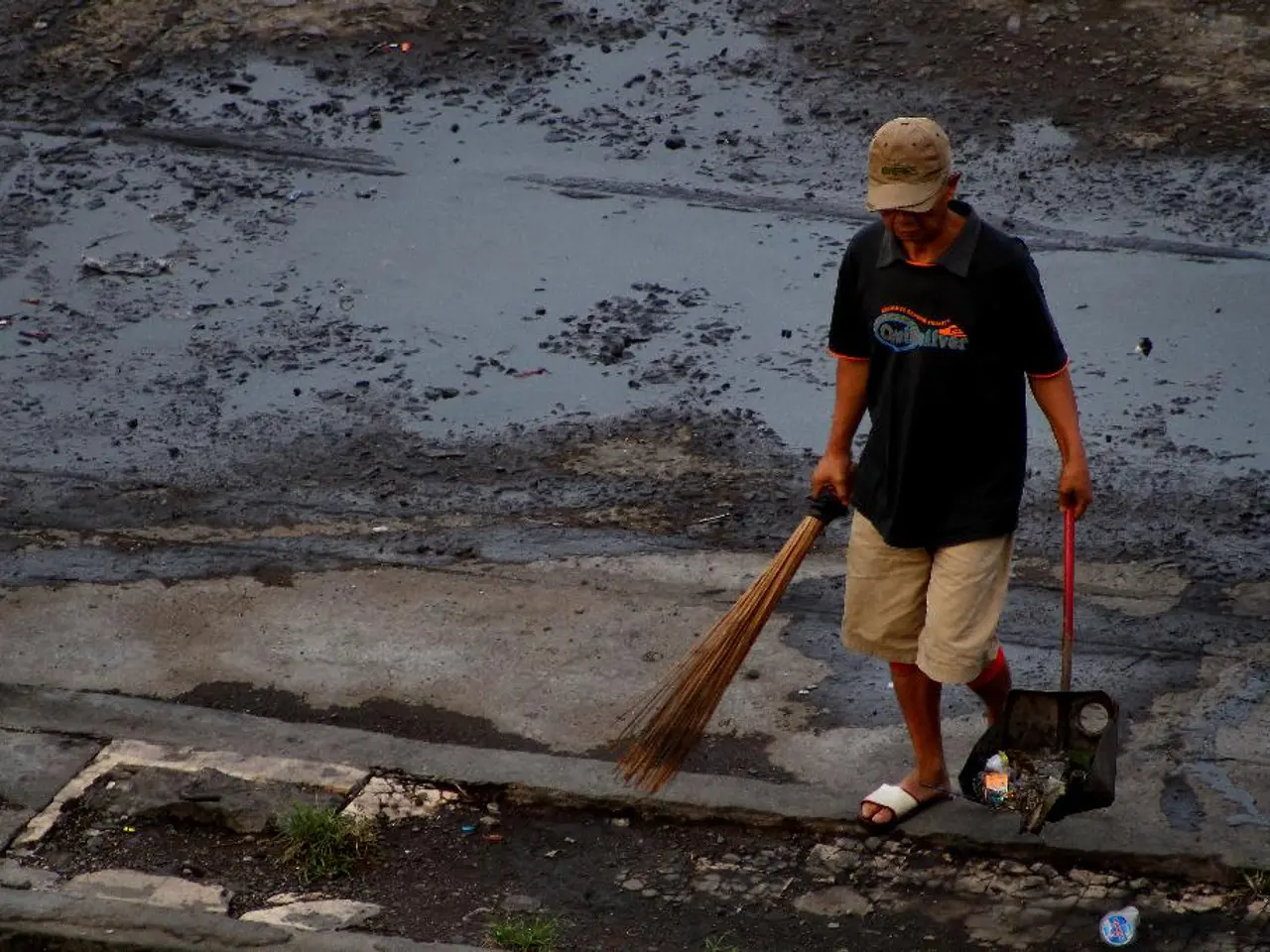Debris Removal in Kaarst
For several decades, Kaarst Municipal Secondary School in Germany has been a part of a unique local tradition known as the "Three Broom Day". This tradition, carried out using trash bags, tongs, and gloves, saw approximately 50 students take to the streets of Kaarst to collect litter as part of a community clean-up event.
However, due to the ongoing COVID-19 pandemic, this tradition has been put on hold. The students' goal of maintaining a clean and tidy environment has been temporarily sidelined as the school adheres to public health guidelines.
The "Three Broom Day" tradition is deeply rooted in the community of Kaarst, with the school taking the initiative to carry out the event. Over the years, the tradition has been voluntarily participated in by students, who have been dedicated to keeping their town clean.
Despite the tradition being on hold for a few years, an initiative has been formed at the school to revive it. However, due to the current COVID-19 restrictions, the tradition has yet to be reinstated.
The "Three Broom Day" tradition, inspired by cultural or fictional themes, is a popular event in many schools and communities. Its revival at a school typically involves reintroducing cultural rituals or festivities to enhance school spirit and community engagement.
However, more specific information about Kaarst Municipal Secondary School’s "Three Broom Day" tradition would be needed to provide a comprehensive understanding of its history, impact, and current efforts. If additional details become available, we will update this report accordingly.
[1] Search Result: Church Event Related to a Prayer Garden but Does Not Mention the School or the Three Broom Day Tradition
- Though the ongoing COVID-19 restrictions have temporarily halted the Three Broom Day tradition, other environmental-science initiatives have been proposed in educating students about the importance of environmental-education and self-development.
- As the Three Broom Day tradition is put on hold, the school has focused on other aspects of education-and-self-development, including the promotion of various science disciplines, to foster responsible citizenship and a cleaner environment.




